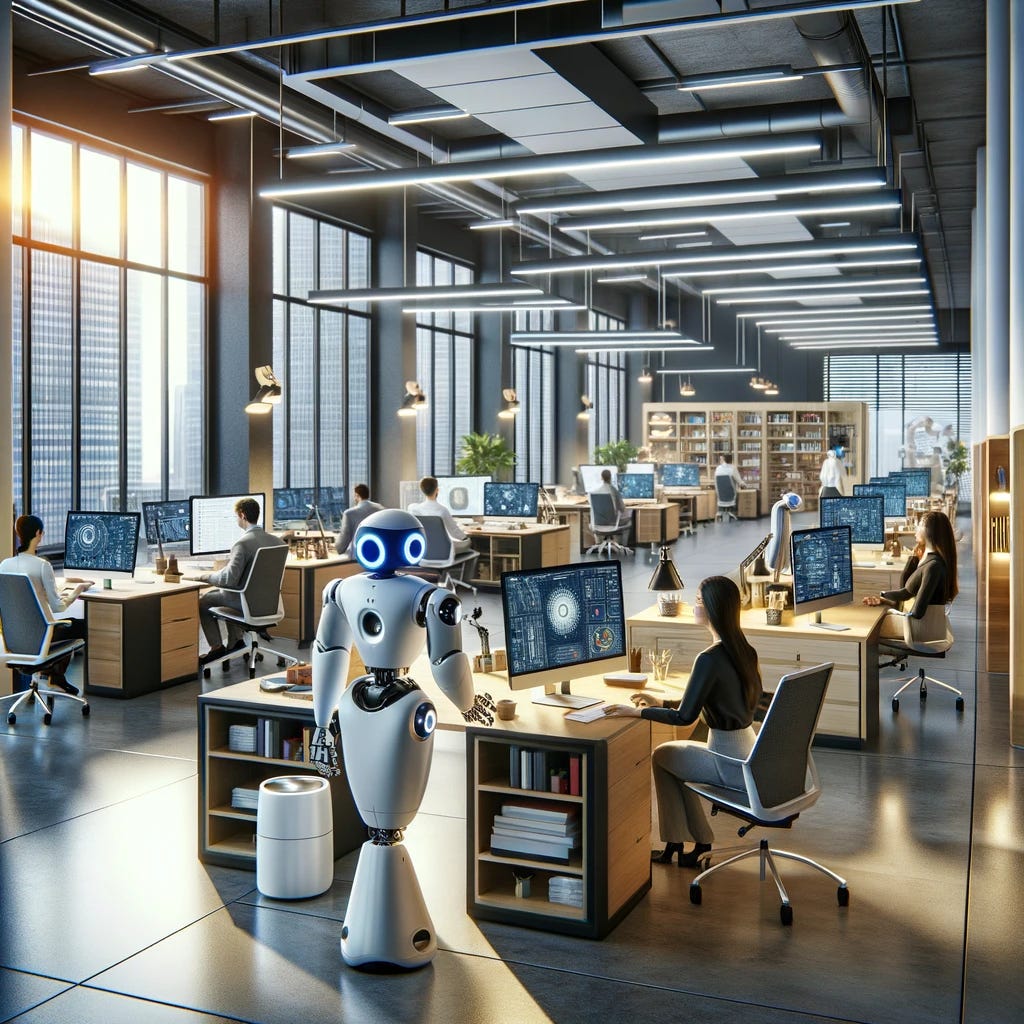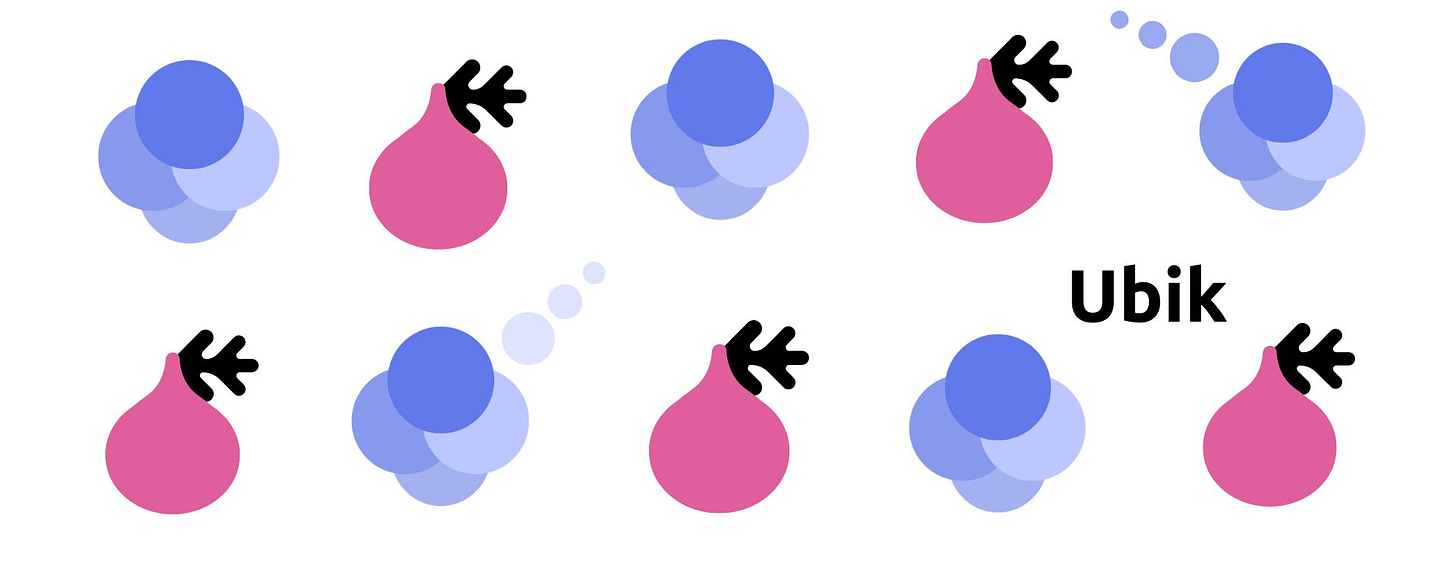- Published on
How Scary is Openai's Sora?
Welcome to the Ubik Blog!
If you still need to subscribe, subscribe here!
Navigating the Ethical Terrain of Artificial Intelligence
Jaw Dropped
Sora , by OpenAI, is the latest addition to their rapidly expanding suite of AI tools. The image above is a screenshot from a one minute video created by Sora. My jaw indeed dropped; I couldn't stop watching. The realism of these short clips is both incredible and unsettling.
We are moving very quickly. Just a year ago, AI chatbots and image generators captivated the world; we laughed at silly videos like Will Smith eating spaghetti or AI-generated beer ads that hilariously missed the mark of reality. Today, we anxiously watch as we realize the rapid pace of AI advancements. I keep asking myself, what will the landscape look like in five years? Who is affected by Sora? And are tools like Sora or DALL·E solving any real problems?
Who is affected by Sora?
Industries like Film, Advertising, and Video Production are all about to change dramatically. Stock Videos are short clips put up for sale by small artists and used in the industries mentioned above. From respected Hollywood studios to micro-influencers, content creators at all levels use stock footage in their video production. With Sora, users can generate expensive stock footage with a simple prompt for an affordable subscription fee.
Subscription fees mean all those small artists and content creators who made a living selling stock footage will likely be out of work soon. Sora is the first AI tool that lies in the grey of morals. Advertisers will now generate their stock footage; eventually, Hollywood might develop its films. With Sora, the gates of possibility have opened beyond what was thought possible 18 months ago. The film/video production industry is far from where Sora's effects end.
The Broader Implications of AI:
With the unveiling of Sora just two weeks ago, collectively, the only thing Americans can think about is how this tech will affect our election cycle and the influence AI will have in our decision-making. Sora is unavailable to the public ; you can't sign up and start generating videos, and you most likely won't be able to until 2025 due to the 2024 presidential election. Last Friday, "20 leading AI companies, including Openai, announced a joint commitment to combat AI misinformation ahead of the 2024 elections" (Field, 2024). Misinformation and disinformation have been real issues in digital spaces for a long time; now, with huge advancements in AI, we must be more careful with whom and how we trust.
In a world where everyday people can generate convincing short videos, it isn't hard to imagine one-minute clips of Dr. Anthony Faucci endorsing and eating Ivermectin while sitting on a horse in South Dakota.
 Generated with ChatGPT 4 - “Prompt: man in a suit, with a red tie, sitting on a horse, holding a pill bottle”
Generated with ChatGPT 4 - “Prompt: man in a suit, with a red tie, sitting on a horse, holding a pill bottle”
What Problem Does Sora Solve?
Sora's technology is changing more than just video generation. It's a gateway to spatial computing, a field that merges the digital and physical worlds. Spatial computing is the technology that allows computers to connect with the physical world interactively (Dickson, 2024). The new **Apple Vision Pro **uses groundbreaking spatial computing that elevates user experiences in digital environments and allows computers to understand the physical world around them better. Spatial computing is more than just necessary for VR and AR. Understanding the physical world is essential in robotics as we create more dynamic and human-like robots for traditionally human tasks.
Sora's technology can change how robots interact with the physical world. Robots can (hypothetically) assess physical situations with generative video and spatial computing and determine what's wrong. For example, let's say your plumbing system broke; sending down a small robot with the ability to look around and understand the problem based on the space it's in would be a massive step in our relationship with robots. This technology may seem novel and semi-useless today, but "spatial computing is a natural evolution of the way we use and experience technology" (Hackl, 2023).
Envisioning 2030
 Generated with ChatGPT 4 - Prompt: “A realistic take on an office in 2030, with robots, in a skyscraper”
Generated with ChatGPT 4 - Prompt: “A realistic take on an office in 2030, with robots, in a skyscraper”
With rapid developments happening in AI technology, we can expect an "AI-centric" world by 2030. Since the launch of ChatGPT, we have watched workflows, job markets, and politics change immensely. In just two years, ChatGPT has gone from a funny tool to generate fan fic with friends to a platform depended on by millions.
By 2030, AI tools will dominate industries and our lives.
The Film Industry in 2030 will be one of the most AI-centric fields due to the significant price difference. Generative AI is becoming increasingly powerful, and with this new power, generative AI tools like Sora can take over most aspects of the film production process.
With AI actors and AI setting/stock film generation, pitching pilots and loose ideas for full-scale movies can be done at lightning speeds and low production costs compared to today's standard.
In marketing, the automatic generation of written copy and Instagram/TikTok/YouTube Shorts is easier and more cost-efficient than outsourcing the labor or not having complete control over the material.
The impact of AI on education is also significant. Personalized learning experiences facilitated by AI are becoming more accessible and practical. Chatbots and AI tutors can provide students with tailored support, making education more inclusive and adaptable to individual needs. We expect these technologies to be deeply integrated into educational systems, offering students flexible and interactive learning opportunities.
And so many more use cases.
Collaboration, NOT Automatic Generation
AI transforms the way we collaborate and learn. Instead of relying solely on the automatic generation of answers, the focus will be on using AI to enhance human creativity and problem-solving skills. This collaboration between humans and AI will lead to more innovative solutions and a deeper understanding of complex subjects.
What if we didn't use calculators? Should we have stopped using computers in the mid-90s? My grandma told me her parents constantly yelled at her when to get her "face out of the book." Should she have stopped reading? Should we be navigating out of AI, or should we be making more responsible decisions about its development after years of watching personal computing become over-commercialized and boring?
Work Cited
Dickson, B. (2024, January 19). What is spatial computing? A basic explainer. PCMag. https://www.pcmag.com/how-to/what-is-spatial-computing-a-basic-explainer
Field, H. (2024, February 17). Microsoft, Google, Amazon and tech peers sign pact to combat election-related misinformation. CNBC. Retrieved from https://www.cnbc.com/2024/02/16/tech-and-ai-companies-sign-accord-to-combat-election-related-deepfakes.html
Hackl, C. (2023, November 10). What leaders need to know about spatial computing. Harvard Business Review. https://hbr.org/2023/11/what-leaders-need-to-know-about-spatial-computing
Here’s some important stuff you should check out :)
Massive wildfires in Texas Panhandle result in evacuations!
The world’s fastest drone keeps up with F1 world champion.
Check out our AI Education tools here:
Fiig.ai by Ubik
Fiig.ai from Ubik Studio is an academic tool that helps humans collaborate with AI to understand research without sacrificing learning. At Ubik, we aim to create ethical AI tools that impact positively.
Join us
After making an account at fiig.ai, users can:
SEARCH peer-reviewed journals
Get help using AI studies findings to PLAN projects
COLLABORATE with AI to finalize reports (with citations)

